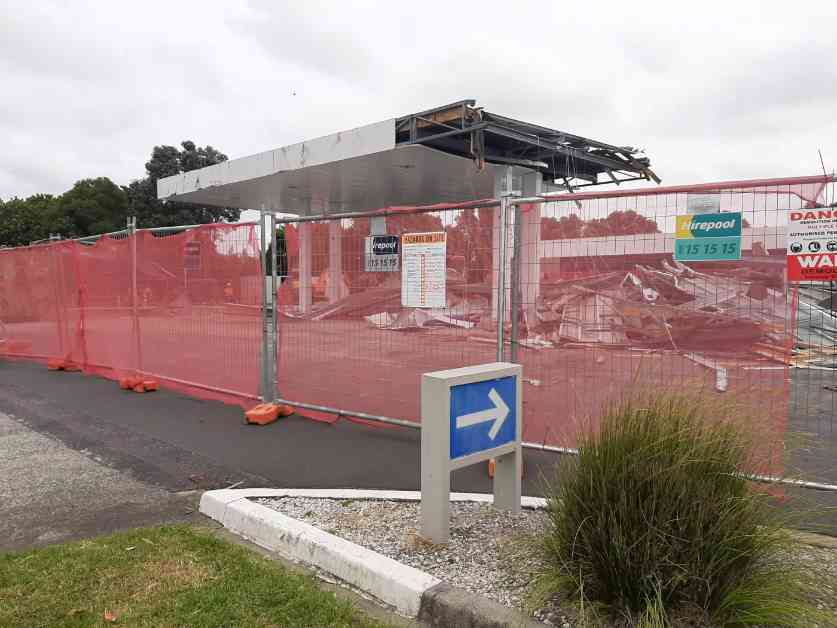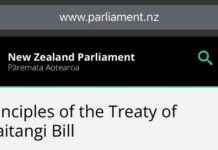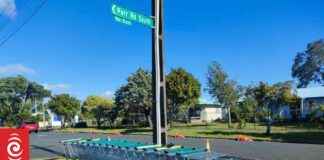Fuel Station Closures in Local Communities: A Look at the Impact on Residents and Businesses
In a recent development that has sparked mixed reactions among residents and commuters in the local community, several gas stations along the Eastern Busway’s path have been demolished to make way for construction projects. The construction site of the former Mobil fuel station on Ti Rakau Drive, near Burswood, stands as a stark reminder of the changes taking place in the area.
Witnesses and residents have taken to social media platforms to voice their opinions on the closures, shedding light on the various perspectives surrounding this issue. From concerns about the accessibility of fuel stations to criticisms of the allocation of resources towards public transportation, the debate continues to unfold online.
Residents Speak Out
John Scott, a local resident, expressed his frustration at the closure of the Mobil fuel station, questioning the decision-making process behind the demolition. He suggested alternative routes that could have preserved the station, highlighting the impact on the Howick Bus Depot as well.
On the other hand, Alistair Gauld applauded the demolition, citing the need for more efficient public transportation options over reliance on individual vehicles. His comments resonated with those advocating for sustainable urban planning and reduced carbon emissions.
Business Impact
Craig Humphrey, a frequent user of the Mobil station on Smales Road, shared his concerns about the dwindling competition among fuel providers in the area. With only a handful of options left, including the three Zs and Pak’nSave, he emphasized the importance of price competitiveness and consumer choice. Humphrey’s reliance on the Gaspy app to find the best fuel prices underscores the changing dynamics in the local fuel market.
Looking Ahead
As the community navigates the repercussions of these closures, it becomes evident that the landscape of fuel accessibility and competition is undergoing a transformation. The closure of gas stations along key transportation routes raises questions about the balance between public infrastructure development and private sector interests.
The conversation surrounding these closures extends beyond mere convenience, touching on broader themes of urban development, environmental sustainability, and economic viability. As residents and businesses adapt to these changes, the need for transparent communication and community engagement becomes increasingly apparent.
Ultimately, the closure of gas stations in local communities serves as a microcosm of larger debates around urban planning and transportation infrastructure. The diverse viewpoints expressed by residents and commuters reflect the complex interplay of interests at stake in shaping the future of our cities.

















